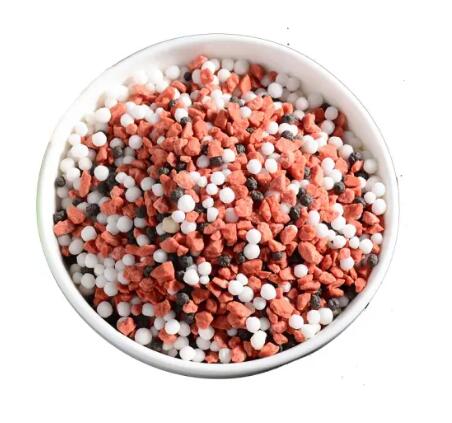What is the best combination of NPK fertilizer?
Selecting the best combination of NPK fertilizer involves determining the optimal nutrient ratios that will promote healthy plant growth and maximize crop productivity. The three primary nutrients—nitrogen (N), phosphorus (P), and potassium (K)—play crucial roles in plant development and overall nutrient uptake. In this article, we will explore the importance of finding the right combination of NPK fertilizer and the factors to consider when determining the best nutrient ratios for different plants and crops.
Understanding Nutrient Requirements: Different plants and crops have varying nutrient requirements at different stages of growth. Understanding the specific nutrient needs of your plants is essential in determining the best combination of NPK fertilizer. Some crops may require higher levels of nitrogen for leafy growth, while others may need more phosphorus and potassium for root development or fruit production. Consultation with agricultural experts, soil testing, and crop-specific guidelines can provide valuable insights into the nutrient requirements of your plants.
Soil Analysis and Nutrient Deficiencies: Conducting a soil analysis is a crucial step in determining the nutrient deficiencies present in your soil. Soil testing identifies the existing nutrient levels and highlights any imbalances that may hinder plant growth. By addressing nutrient deficiencies through targeted fertilization, you can ensure that your plants receive the right combination of NPK fertilizer to rectify any imbalances and promote optimal growth.

NPK Ratios for Different Crops: Finding the best combination of NPK fertilizer involves considering the recommended nutrient ratios for different crops. While there is no one-size-fits-all solution, some general guidelines can be followed. For example, leafy green vegetables, such as lettuce or spinach, benefit from higher nitrogen levels (e.g., a higher N value in the NPK ratio). Fruit-bearing crops, like tomatoes or peppers, may require a balanced ratio of nitrogen, phosphorus, and potassium. Understanding the specific nutrient requirements for each crop will help you tailor the NPK ratios accordingly.
Crop Growth Stages: Plant nutrient requirements can vary at different growth stages. For example, during the vegetative stage, plants often require higher nitrogen levels to support leaf development and overall growth. In contrast, during the flowering and fruiting stages, a shift towards increased phosphorus and potassium may be beneficial for promoting flower formation and fruit production. Adjusting the NPK ratios based on the growth stages of your plants can ensure that they receive the appropriate nutrients when they need them the most.
Balancing Environmental Factors: Environmental factors, such as soil pH and climate conditions, can influence nutrient availability and uptake by plants. Certain soil pH levels may impact the availability of specific nutrients, necessitating adjustments in the NPK ratios to compensate for any limitations. Additionally, different climates can affect nutrient leaching or evaporation rates, requiring modifications to the NPK ratios to account for potential nutrient losses.
Conclusion: Determining the best combination of NPK fertilizer involves a thoughtful consideration of factors such as plant nutrient requirements, soil analysis, recommended NPK ratios for different crops, growth stages, and environmental conditions. Tailoring the NPK ratios to meet the specific needs of your plants can contribute to healthy growth, improved nutrient uptake, and enhanced crop productivity. Consulting with agricultural experts, conducting regular soil testing, and staying informed about the specific nutrient requirements of your crops will guide you in selecting the optimal NPK fertilizer combination to foster robust plant development and maximize yields.
233
0
0
All Comments (0)
Previous: Top 20 Best Selling Vegetable Seeds: A Guide to Gardening Success
Next: Plastic Plant Trays: Versatile and Practical Solutions for Gardening
If you are interested in sending in a Guest Blogger Submission,welcome to write for us!




Comments